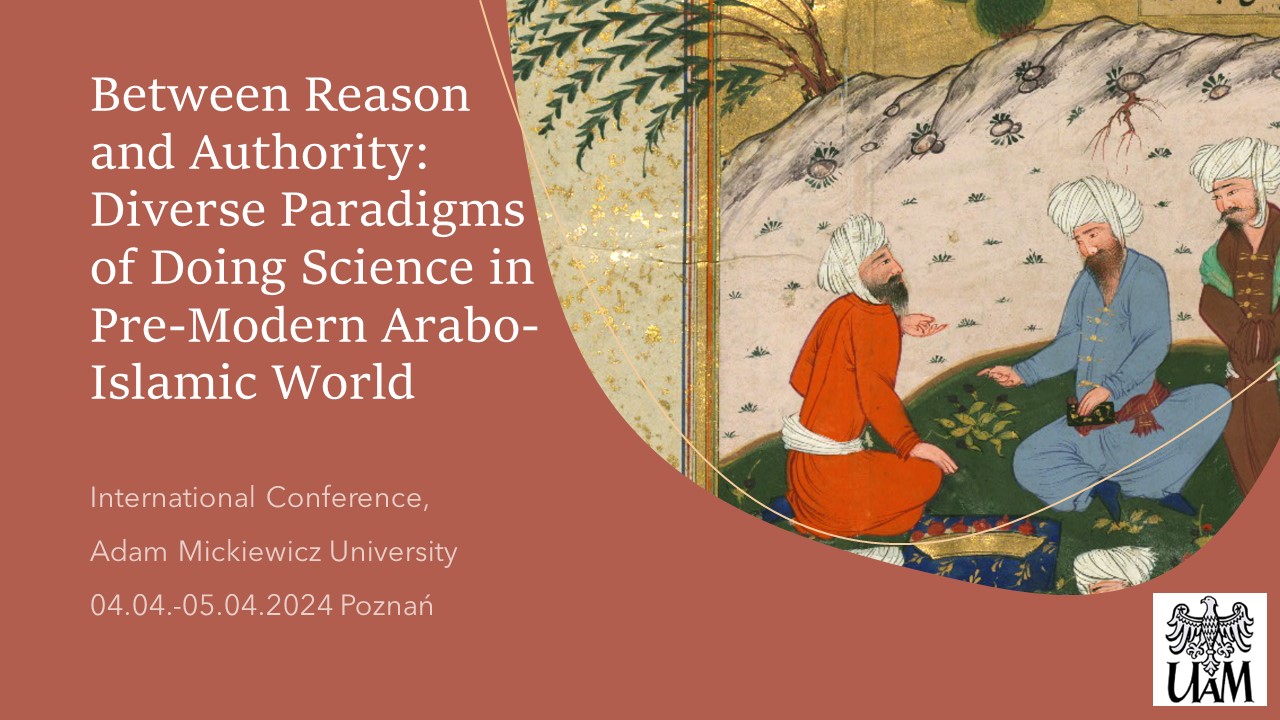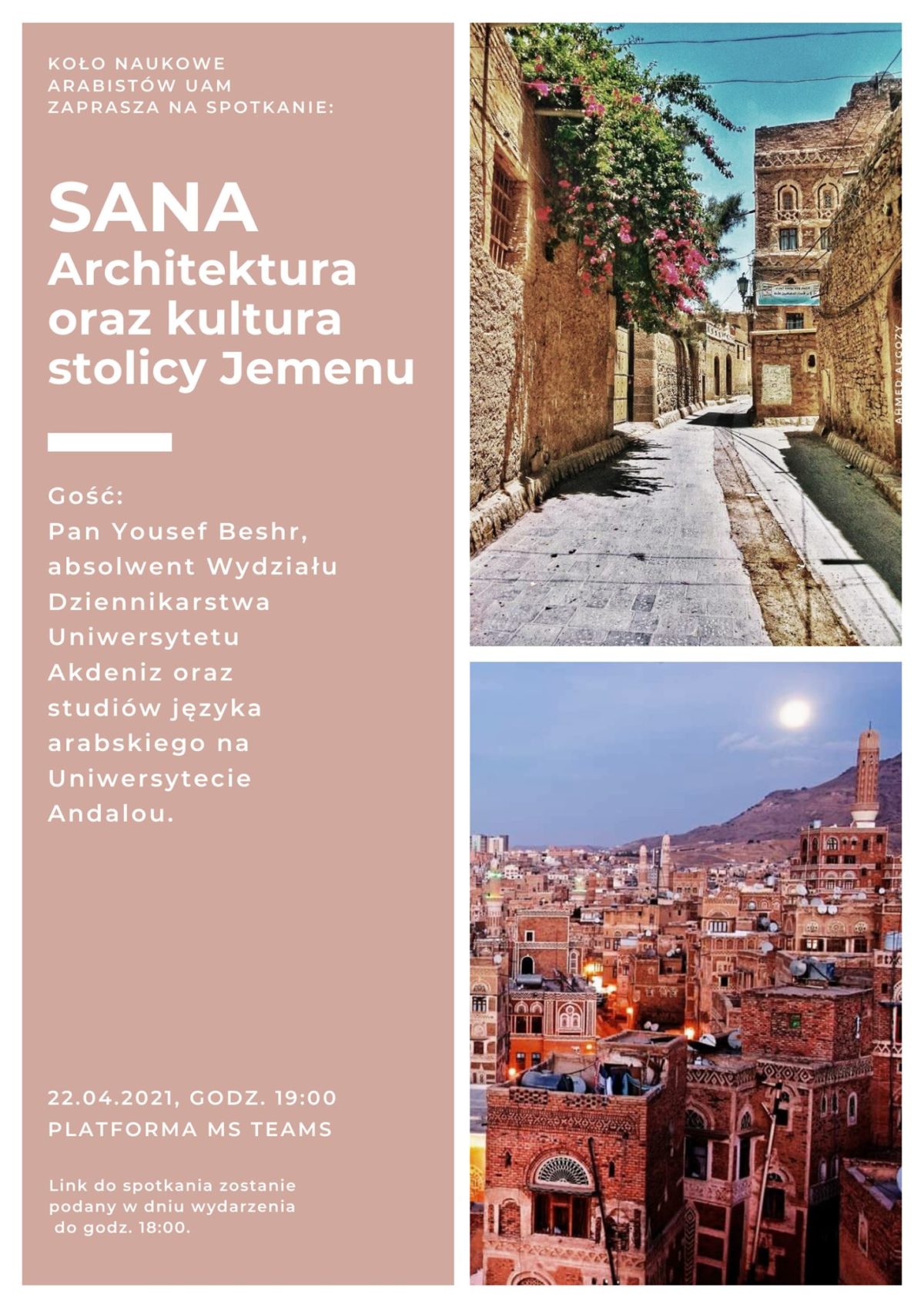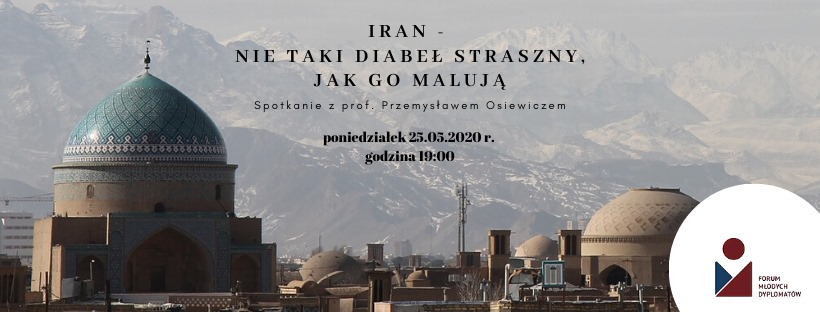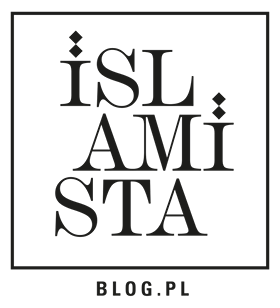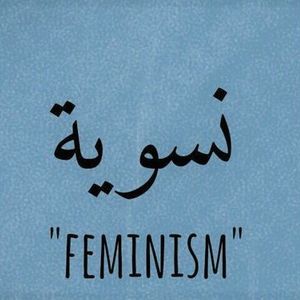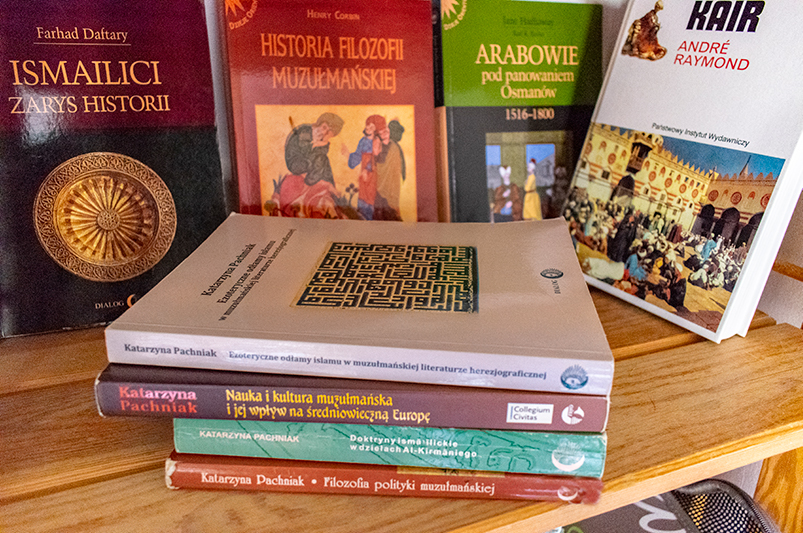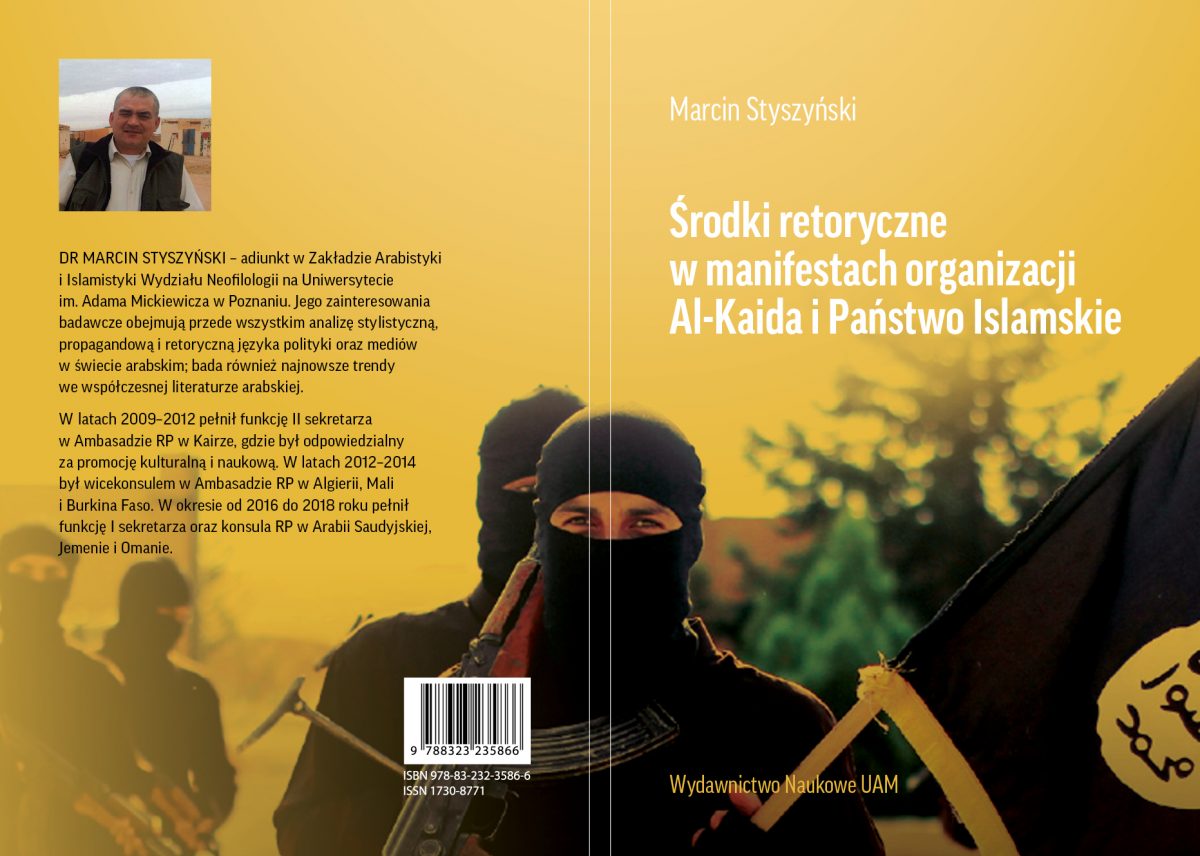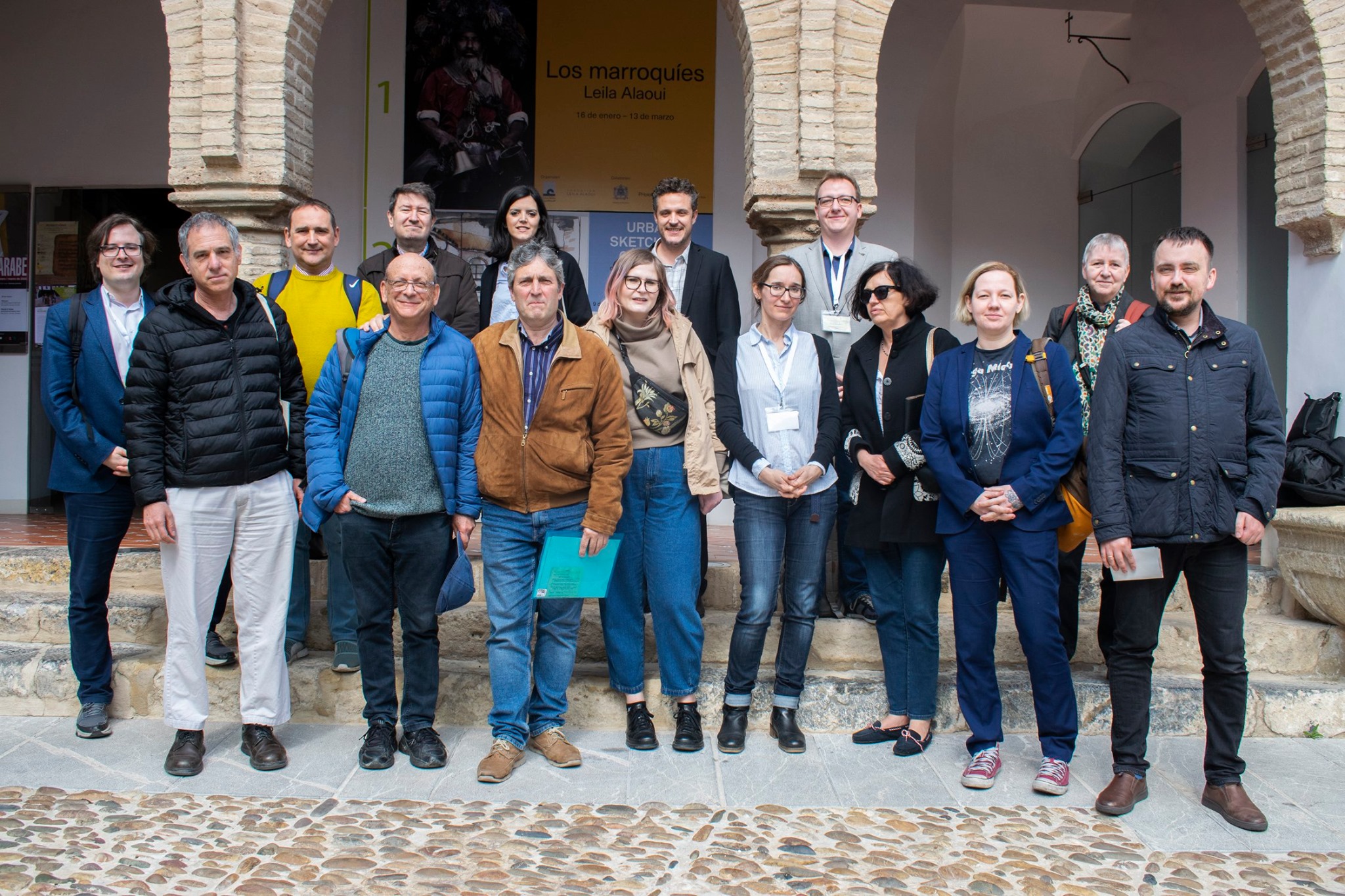Zakład Arabistyki i Islamistyki zaprasza na międzynarodową konferencję:
Between Reason and Authority. Diverse Paradigms of Doing Science in Pre-Modern Arabo-Islamic World
Uniwersytet im. Adama Mickiewicza, Poznań, 4-5 kwietnia 2024
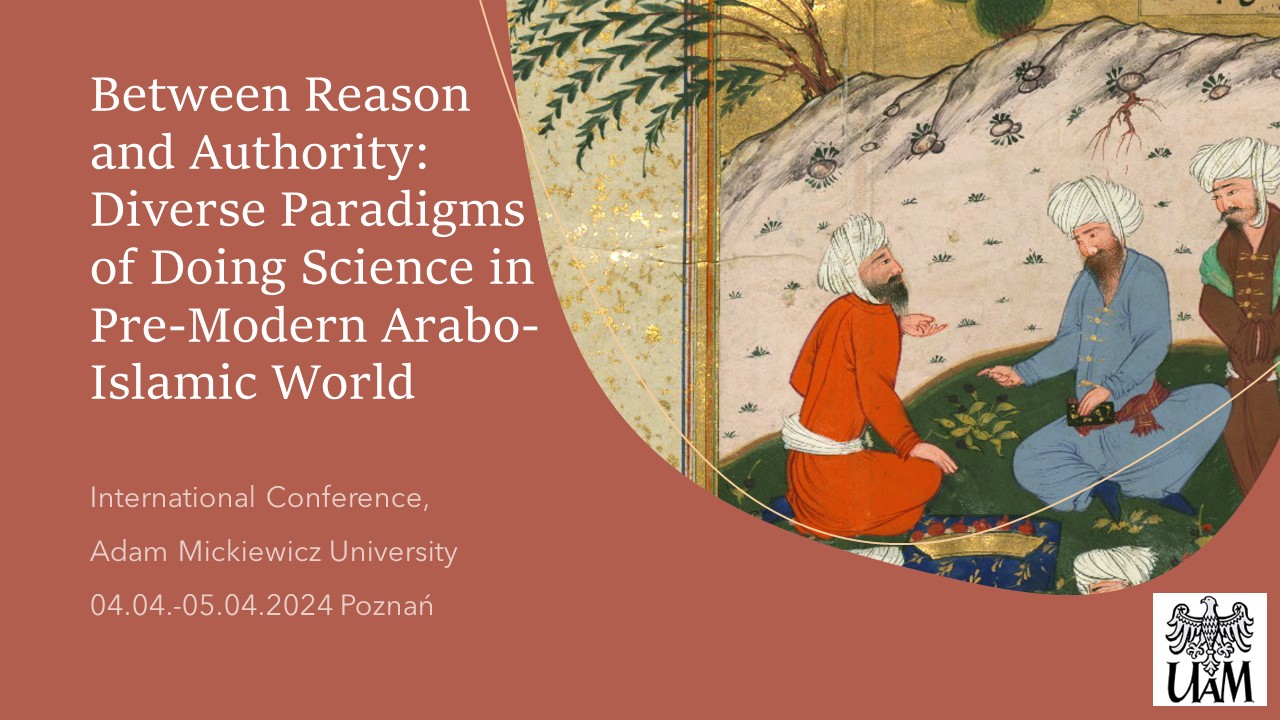
CALL FOR PAPERS
Like all the major monotheistic religions Islam had to deal with fundamental epistemological dichotomy between the divine revelation and human reason. The various schools of discursive theology (kalām) like Mu’tazilites and Ash’arites as well as Hanbalites/Muhaddiṯūn proposed their ways to solve the dilemma by differently weighing the status and usage of both principles. The issue was also of major importance for the Islamicate philosophers (falāsifa) who in later time struggled for legitimacy in more and more scripturally oriented milieu. This dichotomy influenced also the ideas of classification of knowledge developed by many thinkers, most notably Ibn Khaldun (1332-1408), who divided the sciences into “transmitted” (‘ulūm naqliyya) and “intellectual” (‘ulūm ‘aqliyya). The first branch encompasses knowledge transmitted from a trustworthy authority – be it divine (like in the case of Qur’anic revelation), prophetical (sunnah and jurisprudence) or ancestorial (history, language, literature and rhetoric) – and depends on the chain of transmitters (isnād) as the measure of veracity. On the other hand the second branch includes philosophy: logic, physics and metaphysics; as well as natural (medicine and agriculture) and mathematical sciences such arithmetic, geometry, astronomy, music and the occult. These fields of inquiry are to be based on individual reasoning and be verifiable by means of syllogism.
During the conference we hope to investigate both epistemological principles as well as theoretical foundations of the sciences based on them, their interrelations and different approaches of historical thinkers to questions such as: what is the hierarchy of sciences, are they opposed to each other, how to reconcile them, are their subjects different, where they do cross over. Various classifications of knowledge and educational strategies and practices are also the object of our interest. Another scope of interest will be the achievements of Islamicate intellectual sciences and their impact on European Medieval and Early-Modern scientifical development.
The year 2024 marks 750 solar year anniversary of passing of Nāsir al-Dīn al-Tuṣī (1201-1274), a polymath engaged in developing multiple fields from both transmitted and intellectual sciences. Writing both in Arabic and Persian he left a collection of over 150 works. From Shi’ite theology to Ethics to mathematics and astronomy, to name just a few fields of his interest, he left a durable mark on many of them. He invented so called “Tusi-couple” that might have indirectly influenced astronomical models of Nicolaus Copernicus (1473-1543). The papers concerning aspects of al-Tusi’s work will be equally welcomed.
- We invite scholars working in the field of Arabic, Iranian and Ottoman studies, Islamic studies, the history of science, history of philosophy, religious studies and others that might contribute to the topic to submit a 100 to 200-word abstract and short bio (in English) by the extended deadline of Jan 30th, 2024 to konfarab@amu.edu.pl
- The conference will be of hybrid type. Please indicate if you plan in-person or online participation.
- The participation fee is: 50 EUR (200 PLN)
- We will inform you of all the technical details of your payment and participation soon after the acceptance of your abstract.
Please consider: We kindly ask all the participants to write their abstracts and hold their speeches in English. The possibility to hold the speech in Arabic or Polish will be offered only in case of acceptance by other participants of the panel in question. Each speech should last for max. 20 minutes.
Scientific board:
John Walbridge, Indiana University, keynote speaker
Katarzyna Pachniak, University of Warsaw, keynote speaker
Andreas Eckart, University of Cologne
Emmanuel Pisani, Dominican Institute for Oriental Studies, Cairo
Krzysztof Stroński, Dean of Faculty of Modern Languages and Literatures, Adam Mickiewicz University
Tomasz Wicherkiewicz, Head Deputy for Scientific Issues, Institute of Oriental Studies, Adam Mickiewicz University
Marcin Michalski, Adam Mickiewicz University
Organisational committee:
Łukasz Piątak, secretary of the conference
Filip Jakubowski, head of Chair of Arabic and Islamic Studies
Marcin Styszyński
Sylwia Hamodi-Owczarczak
